Migraine: Ceredigion woman says condition controls her life
- Published
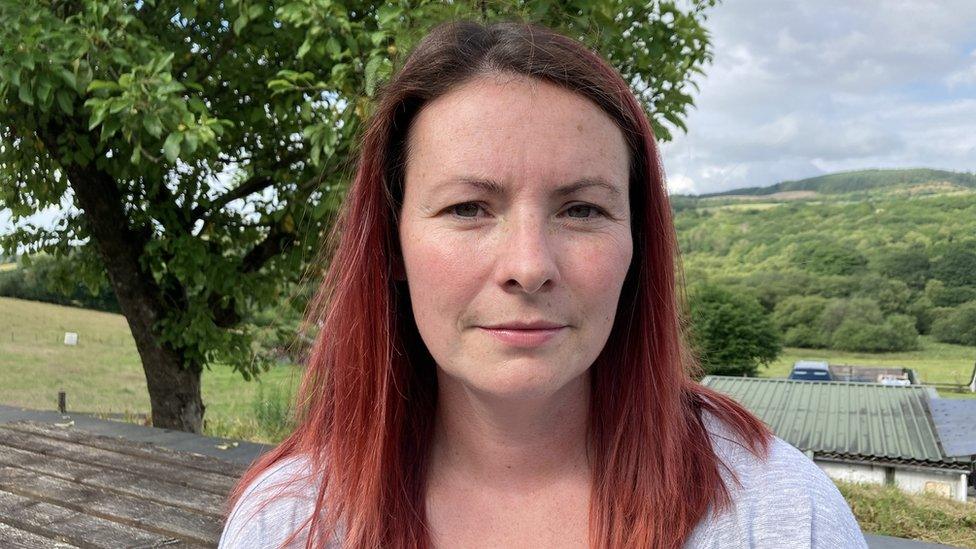
Delyth Jones said having migraines affects her life "massively"
A woman who has about nine migraines a month has said the condition controls her life.
Delyth Jones, 32, from Ceredigion, said she has missed her children's school concerts and sports days due to them.
A former GP who lost her job after a chronic migraine diagnosis has set up a voluntary support group in Cardiff, citing a lack of support.
The Welsh government said it was committed to improving care and services.
Ms Jones first started having migraines as a teenager and described the pain as "intense".
"It starts as a little tingling behind my eye, and I think 'oh yes, I'm going to have a migraine today'," she said.
"[It's] a huge pressure running back towards the back of my head from my eye. The pain, I can't describe it."
Ms Jones said some of her migraines can last for days.
"As a mother of three, it affects my life massively. I've missed out on things that they do, school concerts, sports days," she said.
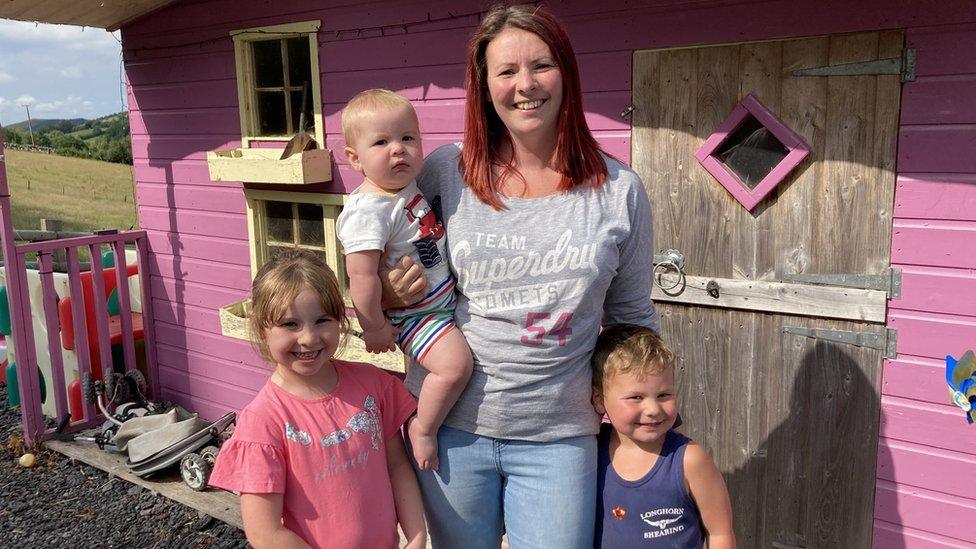
Delyth Jones and her three children
"I've turned into an anxious person. Anxious that people don't believe me when I say that I have one. I feel isolated.
"Not many other people I know have them and I can't talk to other people about how I feel because they don't understand."
Ms Jones said she struggled with a lack of support when she went to see the doctor about her migraines.
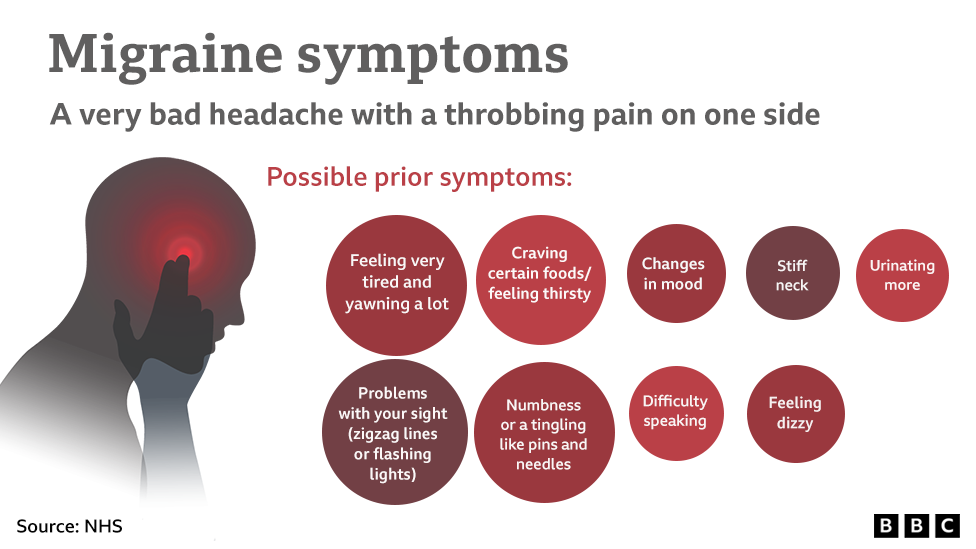
"When I went to the doctors there was no literature, no support groups suggested, they were just quite happy to give me the medicine and basically 'that will help you'.
"It does worry me. It controls your life."
Dr Anna Maclean, an ex-GP who lost her job after a chronic migraine diagnosis, set up a support group for the condition in Cardiff last year, which now has 60 members.

Dr Anna Maclean set up a migraine support group in Cardiff
"There isn't much expertise within Wales although I'm sure people are trying their best under the difficult circumstances of the NHS," said Dr Maclean.
"So I've just sought to help people and, along with another GP, we've set up this group because the numbers are enormous.
"Through the group they're all meeting up with people who've got the same symptoms so they don't feel so alone.
"[Migraines] needs to be made visible. Whilst it doesn't kill you, it absolutely kills your life."
Dr Llinos Roberts, from the Royal College of General Practitioners, said GPs can refer patients to headache clinics but more funding was needed to improve care in Wales.
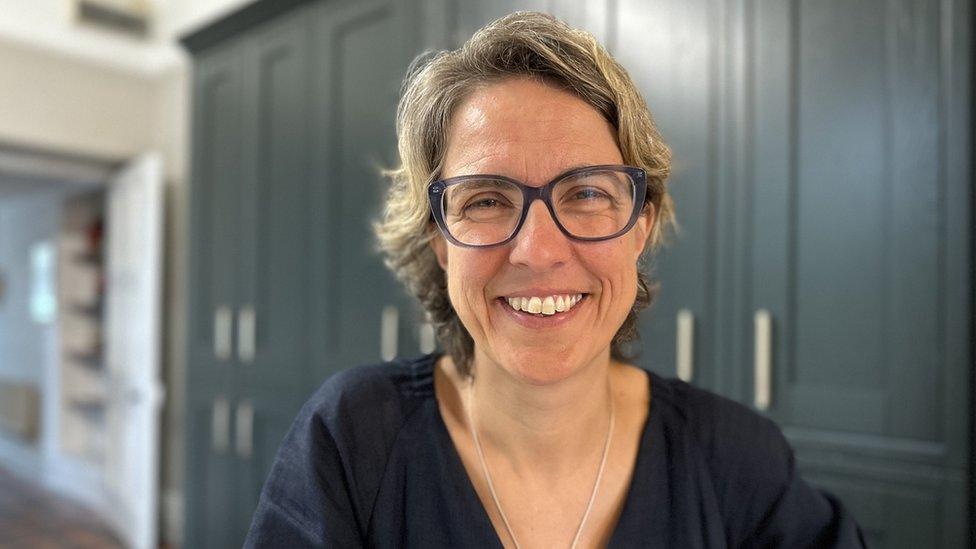
Dr Llinos Roberts called for more funding to improve care in Wales
"We know that migraines are very common but the complexity lies in the range of symptoms people might experience," she said.
"There are some symptoms that are more common than others: head pain - often one side of the head, the feeling of nausea, problems with vision... but these can vary according to the individual.
"There is a need perhaps to increase the amount of funding to help patients see professionals who have a particular interest in migraine care."
Charity The Migraine Trust said there was a "long way to go" to improve awareness.
According to its research, one in seven people in Wales live with the condition, and one in ten people in the UK.
"I think there's a lot the Welsh government could do," said its chief executive Rob Music.

A migraine support group meeting in Rhiwbina, Cardiff
"If you think about just how common my migraine is, and just the impact that it has, and so poorly understood it is.
"I think we very much feel that that the migraine needs to should do must to get to where menopause is now."
The Welsh government said it recognised the "debilitating effects" of migraines.
"We are committed to working with the NHS to improve care, services and access to services," it said.
It said a headache toolkit was recently launched to support frontline clinical teams in diagnosing and planning care for patients.
Related topics
- Published10 March 2018
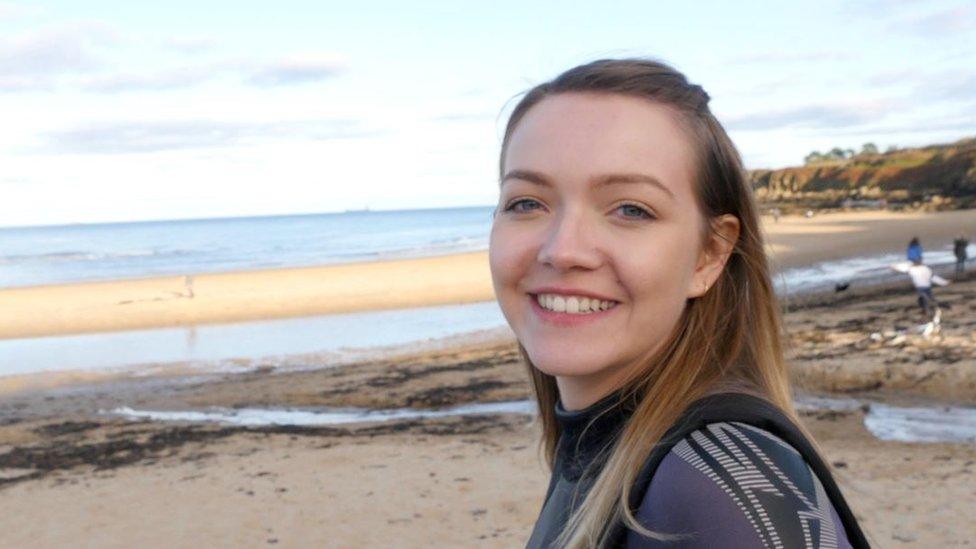
- Published31 May 2023

- Published26 September 2019
